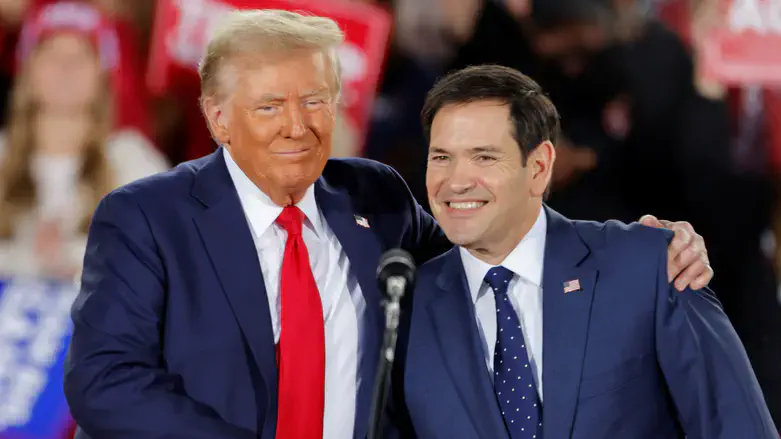
On January 20, Donald Trump will be sworn in as President of the United States, and one of the major challenges he will face will be the progress of Iran toward nuclear weapons.
The recent appointments to Trump's new administration indicate that the United States will return to a policy of "maximum pressure" on the Tehran regime, which will face a particularly hostile and hawkish administration. The new Secretary of State, Marco Rubio, is considered a "hawk" par excellence on the Iranian issue.
After Iran's latest attack on Israel, Rubio said, "Only by threatening the survival of the regime in Iran through maximum pressure and direct and disproportionate measures is there a chance of influencing and changing their criminal activities."
Even the new national security adviser expected to serve in the Trump administration, Michael Waltz, holds a similarly hawkish view of Iran. When the Biden administration pressured Israel not to attack Iranian nuclear or oil facilities, Waltz said that "Biden pressured Israel to do less than it should."
He even suggested to Israel to attack Iran's nuclear and oil facilities at Natanz. Trump himself said several times during his campaign that the US would not try to overthrow the regime in Tehran, but would not allow it to possess nuclear weapons.
"I would like to see Iran do very well. The only thing is that they can't have a nuclear weapon," Trump said last month. Before the Israeli strike on Iran, Trump mocked Biden for demanding that Israel not attack the nuclear facilities. "Israel should hit the nuclear first, and then everything else," Trump said.
Hemme Tablo, an Iran expert at the Foundation for the Defense of Democracies, told Fox News that "it is highly likely that maximum pressure will return. U.S. allies are now asking, 'What for? Is it for regime collapse? Is it for a deal? What if the Iranians don't negotiate in good faith?'"
